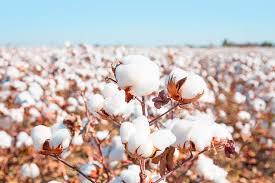1% Threshold For Genetically Modified Organisms (GMO):

The Food Safety and Standards Authority of India (FSSAI) in a recent order has set 1% threshold for Genetically Modified Organisms (GMO) in food crops imported into India.
- Earlier in August 2020, FSSAI had issued the order that 24 food crops the country imports would need a ‘non-GM-origin-cum-GM-free certificate’ issued by a competent authority.
Genetically Modified Organisms (GMOs):
- These are living organisms whose genetic material has been artificially manipulated in a laboratory through genetic engineering.
- This creates combinations of plant, animal, bacteria, and virus genes that do not occur in nature or through traditional crossbreeding methods.
Genetically Modified Crops:
- Conventional plant breeding involves the crossing of species of the same genus to provide the offspring with the desired traits of both parents.
- Bt cotton is the only Genetically Modified (GM) crop that is allowed in India. It has alien genes from the soil bacterium Bacillus thuringiensis (Bt) that allows the crop to develop a protein toxic to the common pest pink bollworm.
- Herbicide Tolerant Bt (Ht Bt) cotton, on the other hand is derived with the insertion of an additional gene, from another soil bacterium, which allows the plant to resist the common herbicide glyphosate.
- In Bt brinjal, a gene allows the plant to resist attacks of fruit and shoot borers.
- In DMH-11 mustard, genetic modification allows cross-pollination in a crop that self-pollinates in nature.
Legal Position of GM crops in India:
- In India, the Genetic Engineering Appraisal Committee (GEAC) is the apex body that allows for the commercial release of GM crops.
- Use of the unapproved GM variant can attract a jail term of 5 years and fine of Rs. 1 lakh under the Environment Protection Act, 1986.




